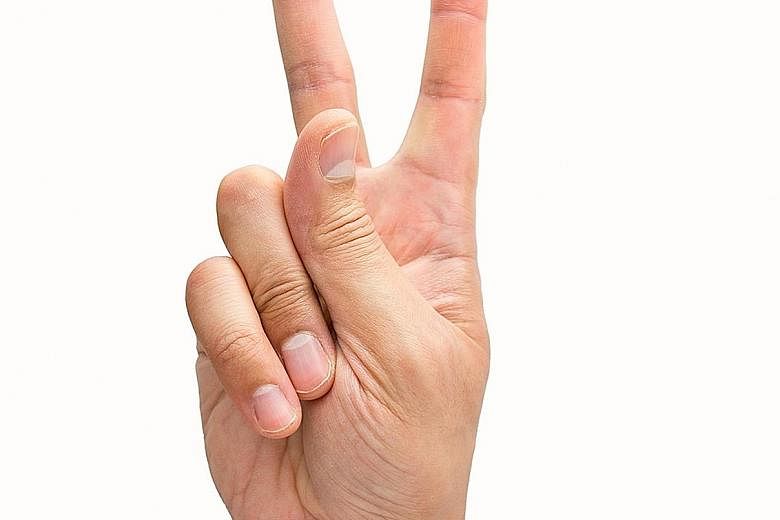TOKYO • Could flashing the "peace" sign in photos lead to fingerprint data being stolen?
Research by a team at Japan's National Institute of Informatics (NII) says so, raising alarm bells over the popular two-fingered gesture.
Fingerprint recognition technology is becoming widely available to verify identities, such as when logging on to smartphones, tablets and laptop computers.
Bu the proliferation of mobile devices with high-quality cameras and social media sites where photographs can easily be posted is raising the risk of personal information being leaked, reports said.
The NII researchers were able to copy fingerprints based on photos taken by a digital camera 3m away from the subject.
"Fingerprint data can be recreated if fingerprints are in focus with strong lighting in a picture," NII researcher Isao Echizen told Yomiuri TV. He added that advanced technology was not necessary and anyone could easily copy fingerprints.
But NII says it has developed a transparent film containing titanium oxide that can be attached to fingers to hide their prints, the reports said.
The film prevents identity theft but does not interfere with fingerprints being effective in identity verification, the Sankei Shimbun reported on Monday. The technology would not be ready for another two years, the paper said.
AGENCE FRANCE-PRESSE

